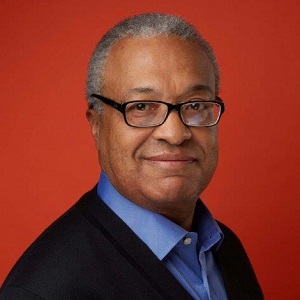Thursday, May 21, 2015
 by Frederick James Frelow, Senior Program Officer, Ford Foundation
by Frederick James Frelow, Senior Program Officer, Ford FoundationThis piece is an excerpt from a commencement speech given to the Northeastern College of Professional Studies on May 15, 2015.
Many years ago, one of those key people in my life, a professor named Dale Mann at Columbia University where I got my doctorate, asked me a question. “Fred,” he said, “what world do you want to live in?”
It’s a question that has stayed with me ever since.
It continues to remind me that if there is something about the world that is not the way I think it should be, my education gives me an opportunity – and a responsibility – to do something about it.
This is a question that my grandparents did not have the luxury of asking.
In their world, the most pressing question – was how will we survive?
They survived the Great Depression in the 1930s, and fled to California to escape the Dust Bowl in Oklahoma, where overuse of the land and severe drought ruined thousands of farms and made millions of people homeless. Yet, they faced another obstacle, too. As African Americans, they had no legally recognized right to equal education or equal opportunity. They were only able to get an elementary school education.
The laws we take for granted today did not exist then. But, over time, the laws leading to fairer economic and educational opportunities for all changed, and equally important, people reached out and helped others less fortunate than themselves.
By the time my parents were in search of quality education, they had that opportunity to shape the world. My father was able to become an English teacher, and after completing a Ph.D at the University of California, he became one of the first black school superintendents in New York State. My mother also went to a college and became the first female manufacturing manager responsible for IBM’s high-end products line.
In 1972, it was clear to me what I wanted to do. I wanted to be a teacher. It was a time when many teachers and professors were actively supporting students who were protesting for a more just society. The women’s movement was growing. Students in my high school were protesting the war in Vietnam. I wanted to make the world a better place, and becoming a teacher was one way to achieve this goal.
The world has changed since my grandparents were excluded from getting an education – no doubt about it, but inequality and injustice are still very much with us.
If you want to see how low-income children are being shortchanged, all you need to do is compare the learning opportunities that are typically available to kids in Newton or Charleston –
-- in Scarsdale or Harlem –
-- in Beverly Hills or East Los Angeles.
The initiative I lead at the Ford Foundation supports policy makers who want to do something about that. We want to help educators get the support they need to put into practice the best programs for children. We see that families with financial resources invest in additional instruction and individualized support outside of school – and we ask how children in poor communities can also have access to more hours and better opportunities to learn.
We want learning that is connected to life – to real jobs and to being an informed citizen and being a parent and member of a community – not just memorization of facts to pass a test. The grantees we partner with are proving every day that education can be made “relevant” to students’ lives.
Our hope at Ford is that students exposed to quality education will not only find jobs and a way to support their families, but also will find meaning in their lives and a way to contribute to the world around them.
